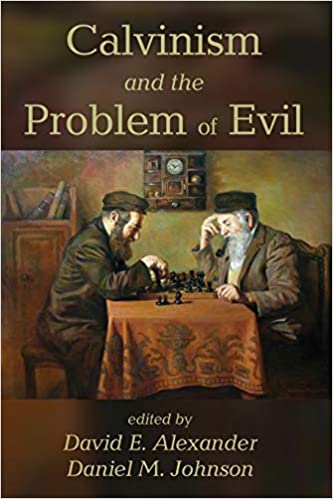A Brief Book Summary from Books At a Glance
by Steve West
About the Editors
David E. Alexander is Associate Professor of Philosophy at Huntington University. He is the author of God, Goodness, and Evil (2012) and numerous popular and scholarly articles.
Daniel M. Johnson is Associate Professor of Philosophy at Shawnee State University. He is the author of a number of articles in metaphysics, epistemology, philosophy of religion, and Asian philosophy.
Introduction
This book is a collection of academic essays that explore facets of the relationship between Calvinism and the problem of evil. It is often assumed that Calvinism is less defensible than other theological positions when it comes to the existence of evil, but this book argues that the Calvinist position is eminently defensible (in fact, more so than other views). The Calvinist tradition has the necessary credentials to handle the problem of evil.
Table of Contents
Chapter 1 Calvinism and the Problem of Evil: A Map of the Territory – Daniel M. Johnson
Chapter 2 Molinist Gunslingers: God and the Authorship of Sin – Greg Welty
Chapter 3 Theological Determinism and the “Authoring Sin” Objection – Heath White
Chapter 4 Not the Author of Evil: A Question of Providence, Not a Problem for Calvinism – James E. Bruce
Chapter 5 Orthodoxy, Theological Determinism, and the Problem of Evil – David E. Alexander
Chapter 6 Discrimination: Aspects of God’s Causal Activity – Paul Helm
Chapter 7 On Grace and Free Will – Hugh J. McCann
Chapter 8 The First Sin: A Dilemma for Christian Determinists – Alexander R. Pruss
Chapter 9 Calvinism and the First Sin – James N. Anderson
Chapter 10 A Compatibicalvinist Demonstrative-Goods Defense – Christopher R. Green
Chapter 11 Calvinism and the Problem of Evil – Matthew J. Hart
Chapter 12 Calvinism, Self-Attestation, and Apathy toward Arguments from Evil – Anthony Bryson
Summary
Chapter 1: Calvinism and the Problem of Evil: A Map of the Territory
The main reason that most academic Christian philosophers are not Calvinists is that they believe that Calvinism exacerbates the problem of evil. Calvinism is sometimes thought of as merely a soteriological system, but Calvinism is also a system of divine determinism. There are different ways of understanding exactly how human agents are free and responsible given Calvinism, but their freedom and responsibility are seen as compatible with divine determinism. One common objection to Calvinism is that it makes God the author of sin. Various responses have been given, but it is essential to remember that there are important disanalogies between our actions and God’s, both morally and metaphysically. Even the common semantic distinction between God acting and allowing is not univocal with that of humans.
Another objection is that Calvinism makes God desire evil. We must avoid the error of equivocation at this point. The Bible clearly teaches that there are states of affairs that God both simultaneously does and does not desire. We know that we experience multiple desires, some of which rule each other out. This point is necessary for both Arminians and Calvinists and thus isn’t a unique objection to Calvinism. It is also argued that Calvinism depicts God as failing to love the lost. It is possible that God has a greater, outweighing good that justifies that some are lost. Notice that this is not a unique problem for Calvinism, but is merely the ordinary problem of evil. Calvinists do have to explain how Adam and Eve fell, but there are various explanatory proposals that can work. On a libertarian model, there are problems with the necessity of sin now, and with the impossibility of sin in heaven.
When it comes to the ordinary problem of evil, various defenses and theodicies have been proposed. The Bible teaches that God acts for his own glory, so Calvinists have often argued that the display of God’s glory is what justifies the existence of evil. God’s glory is beyond our comprehension, and the excellent acts of his infinitely glorious being outweigh all else. His acts are the best possible states of affairs. Some expressions of God’s glory do require the existence of evil (e.g. his mercy and forgiveness). Plantinga points out that the unimaginably great goods of the incarnation and atonement require sin. Other theists remain agnostic about the reason why God allows evil, but insist that there is no reason to doubt that he has a sufficient reason for permitting it. Given what we know about God, we can trust him. Libertarian free will is not necessary for these defenses, and Calvinism actually has some distinct advantages in other philosophical areas. It is also more biblical. . . .
[To continue reading this summary, please see below....]The remainder of this article is premium content. Become a member to continue reading.
Already have an account? Sign In
